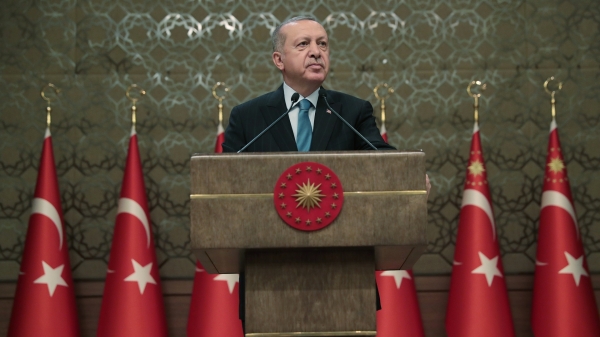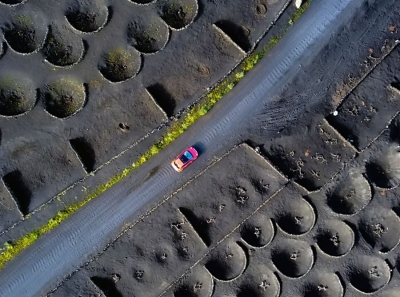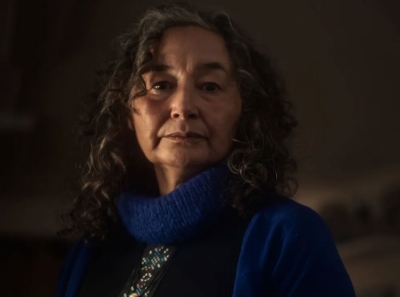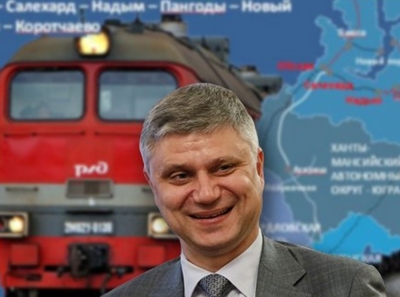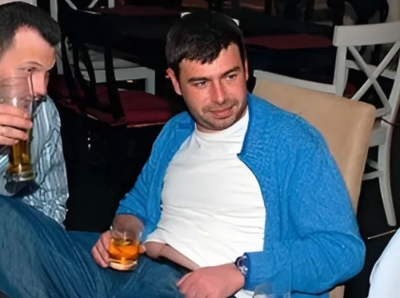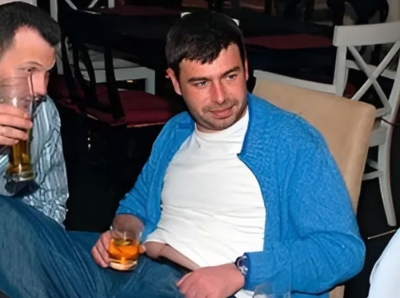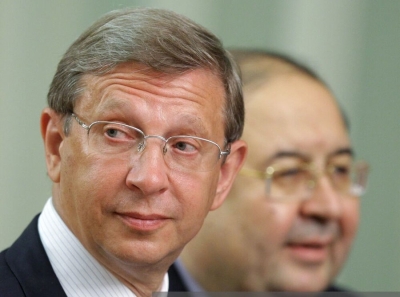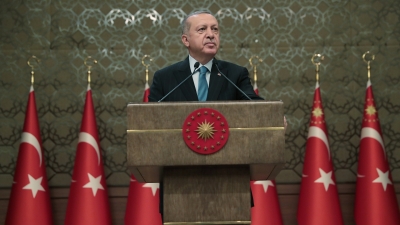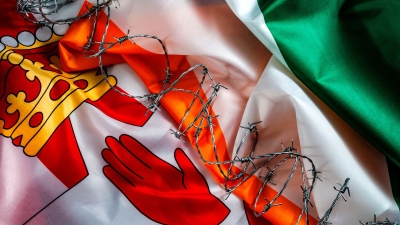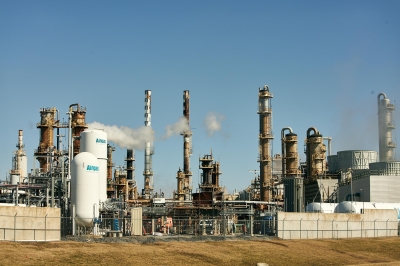Opponents of Turkish President Recep Tayyip Erdoğan hoping that this year’s elections will finally see the back of him after a tumultuous 20 years in power could be in for a shock: Erdoğanism without Erdoğan.
Two elections are set to take place on 14 May—one for the presidency and another for parliament—and campaigning has become even more intense as a result of the horrendous earthquake that struck southeast Türkiye and north Syria on 6 February, killing at least 46,000 people, though the numbers are still rising.
Sensing the electoral tide turning against him, Erdoğan has reacted angrily to public criticism of shoddy construction standards and claims of a slow disaster response – both of which the opposition is trying to capitalize on. The government has declared a three-month state of emergency in the ten impacted provinces, and speculation is rising it will try to delay the election if the public mood augurs an opposition victory.
Opinion polls before the quake showed the alliance between Erdoğan’s Justice and Development Party (AKP) and the Nationalist Movement Party (MHP) still holding strong, which would mean that even if the six-party opposition coalition manages to take the presidency, it would fail to win control of the legislature. That would make it difficult for the opposition to bring back the previous parliamentary system that Erdoğan removed through constitutional changes approved by plebiscite.
The big question is the presidential election. Erdoğan is still the single most popular candidate in a diverse field. His problem is that if voters unite around a single personality in a run-off, he trails behind most of the potential opposition candidates in the alliance to defeat him. Following the recent judicial ban from further office of popular Istanbul mayor Ekrem İmamoğlu for “insulting election officials”, the road has been cleared for the Republican People’s Party (CHP) leader Kemal Kılıçdaroğlu to become that single candidate.
The opposition includes numerous figures who think they should be the anointed one to challenge Erdoğan, including Good Party leader Meral Akşener and Ankara mayor Mansur Yavaş, from the CHP. As the oldest among them Kılıçdaroğlu has made clear in recent months that he sees it as his right – especially since he agreed to allow the younger Muharrem Ince to run as the CHP candidate in 2018.
Born in 1948, Kılıçdaroğlu projects himself as Türkiye’s elder statesman, the adult in the room. But the opposition knows that as soon as their unity candidate is announced – likely in early March, when the election day is so far set for formal declaration – the government media machine will go after him ferociously. They will target him as old, weak, and out of touch, the opposite of everything the government will say Türkiye has become under Erdoğan, and whether young people come out to vote for Kılıçdaroğlu is a serious question. They will also brand him as a “soft-on-terror” risk to national security secretly wooing the pro-Kurdish Democratic People’s Party (HDP), which recently said it will run its own presidential candidate.
Finally, the government is likely to play the sectarian card. Kılıçdaroğlu is an Alevi of Kurdish origin. The AKP has made heavy use of Sunni identity as a political weapon in the past, especially during the Syrian civil war when Erdoğan and pro-AKP media depicted the conflict as a jihad against an Alawite regime led by deviants in faith.
The other big question hanging over the election is, will the government try to rig the vote in any way? The trend of recent elections has been to push the envelope as far as possible. The voting process is heavily monitored in the major urban centers. But out in the provinces, especially the southeast, it becomes difficult to follow what’s happening inside polling stations during and after voting hours. The government also has complete control of the process through its electoral commission, which has made a habit of providing immediate announcements to the state news agency that become etched in stone. And there is the wild card of not only the high numbers of undecided voters but Turks abroad, whose votes could be made to take Erdoğan over the line if things are looking dubious.
Despite all that, the AKP lost two significant elections in 2019, for the mayorships of Istanbul and Ankara. In the case of Istanbul, Ekrem İmamoğlu won even after the government convinced a court to overturn the first vote and hold it again. Türkiye’s elections still operate within the broad margins of what happens in the functioning democracies, without slipping into the kabuki theater of countries like Egypt.
Beyond that, how significant would Erdoğan’s fall be? On foreign policy, the “sea change” that sees Türkiye throw itself back into the arms of NATO and Washington after a tense two decades seems far-fetched, as the popularity of Erdoğan’s stance over Swedish Quran-burning suggests. A whole generation of Turks have grown up used to a country that presents itself as a regional if not global power, and one that like Nasserist Egypt operates within diverse spheres of influence – in Türkiye’s case, the Muslim Middle Eastern, the Eurasian and the Western. No government can just toss that thinking out overnight. For one, Eurasianism was already a strong current in the military and has only gained ground under Erdoğan.
Second, fixing Türkiye’s dire economic problems via Western financial institutions will come at a price that compromises the newly won foreign policy independence. Even if the next government yanks up interest rates to rein in the spending power of ordinary people, it may well balk at a return to hot money in Turkish financial markets and the thought of IMF help to deal with debt. Membership of a Global South that wants to de-dollarize could still count for something in official thinking, although the temptation to follow the neoliberal script will be real.
Thirdly, few Turks want a return to the system of military guardianship and occasional overt junta-rule that Erdoğan scored a historic success in overturning, including its fascistic rules against conservative religious values in public space. Protection of the right to be conservative remains a strong pull for the AKP base.
The stakes are perhaps greater than ever before. This year marks the centenary of the Turkish republic, and enormous prestige will accrue to the government ruling at this important juncture in history. Victory would give Erdoğan and the AKP a green light to push ahead with their project to shape Erdoğan as the de facto founder of a second republic, the most important figure since Sultan Abdülhamid II – forget Mustafa Kemal Atatürk. It would also consolidate the AKP as a permanent party of power, save Erdoğan from corruption trials, and prevent a purge of the Islamist movement.
The ultimate irony of Erdoğan’s remarkable longevity has been the chutzpah of stealing from Kemalism itself, despite hailing from an ideological movement based on debunking much of Atatürk’s legacy. Erdoğan first opted for alliance with the ultranationalists of the MHP in 2015 when waning popularity began to threaten his own party’s electoral dominance, and it’s a marriage that has proven resilient and tough to beat. Despite frequent predictions of its demise, breaking that Islamist-nationalist nuclear bond remains the opposition’s biggest challenge.
The views expressed in this article are the author’s own and do not necessarily reflect Fair Observer’s editorial policy.
For more than 10 years, Fair Observer has been free, fair and independent. No billionaire owns us, no advertisers control us. We are a reader-supported nonprofit. Unlike many other publications, we keep our content free for readers regardless of where they live or whether they can afford to pay. We have no paywalls and no ads.
In the post-truth era of fake news, echo chambers and filter bubbles, we publish a plurality of perspectives from around the world. Anyone can publish with us, but everyone goes through a rigorous editorial process. So, you get fact-checked, well-reasoned content instead of noise.
We publish 2,500+ voices from 90+ countries. We also conduct education and training programs on subjects ranging from digital media and journalism to writing and critical thinking. This doesn’t come cheap. Servers, editors, trainers and web developers cost money. Please consider supporting us on a regular basis as a recurring donor or a sustaining member.
- Make a Donation

- Become a Member


